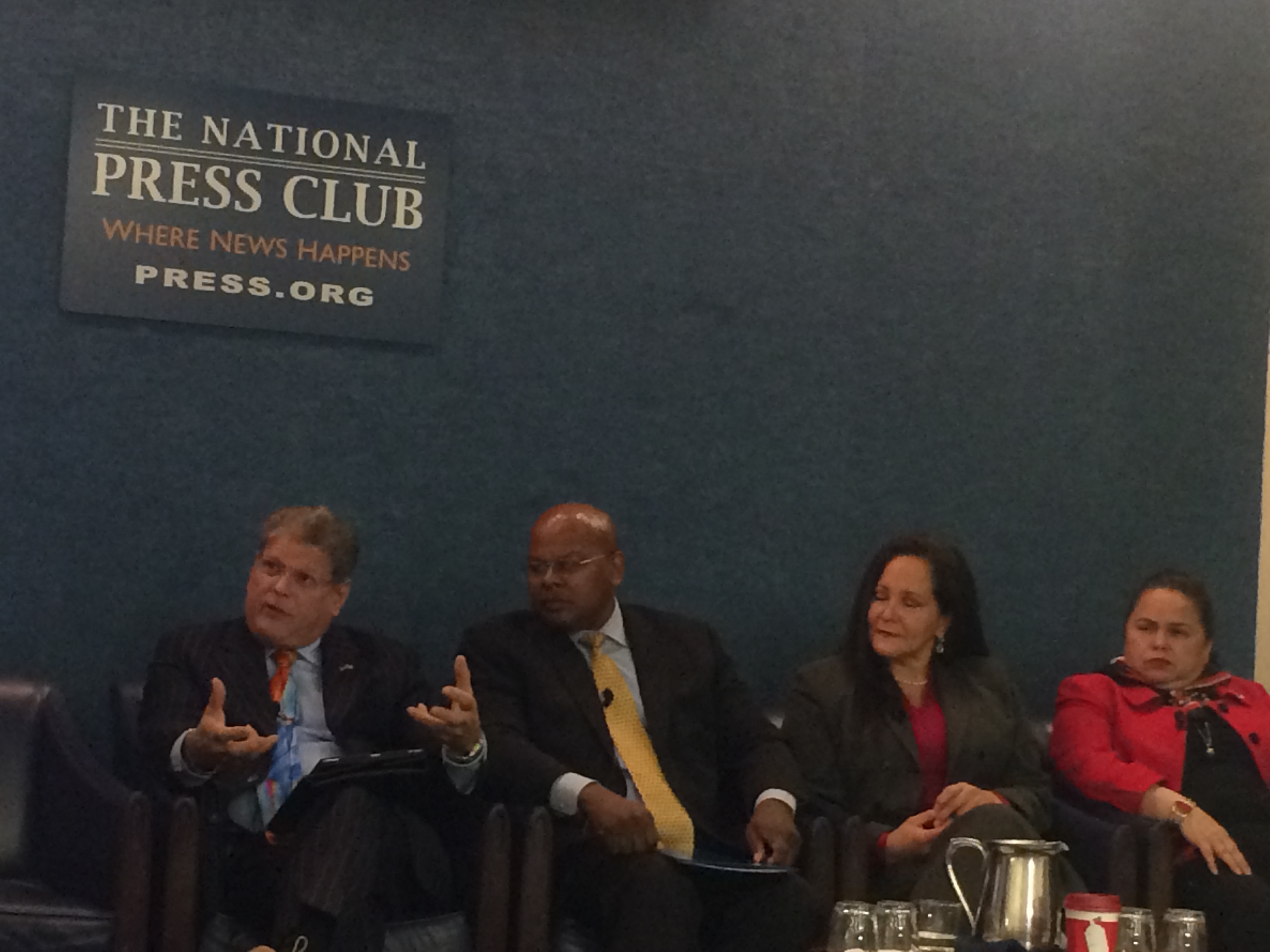WASHINGTON — Understanding medical jargon after visiting the doctor is oftentimes no easy task. Add a language barrier, and it becomes even more difficult. That’s where ConsejoSano is looking to bridge the gap with a new app.
The California-based medical service provider has created a mobile application that allows Spanish-speaking residents of the United States, both documented and undocumented, to have 24-hour access to physicians that assist with non-life threatening issues.
“We wanted to make sure our services were high quality, affordable, convenient and confidential,” Abner Mason, CEO and founder of Consejo Sano, said in a news conference at the National Press Club.
Mason, who is based in the Los Angeles area, added that monthly subscribers would pay $9.99 for an individual and $14.99 for a family of five.
“This is as close to universal healthcare that you can get with the help of technology,” he said.
Here’s how it works. Once the application is downloaded, subscribers are able to create a profile with a physician. The physician can then help the virtual patient with either a proper diagnosis or a referral for further review. All physicians are fluent in Spanish.
According to the 2012 Census, one out of every four Latinos is uninsured. Given that number and the enormous amount send on health care in the U.S., Mason said there is a clear need for this type of innovation.
“We needed a solution that was proportionate to the size of this problem that Hispanics are facing, this growing population,” said Mason.
Dr. Samuel Arce, chairman of the National Hispanic Medical Association, said with immigration reform at the top of the White House’s agenda specialized Hispanic services will be even more relevant.
“If you have massive reform, you have to take care of the needs of these individuals. They don’t mind being productive, but you have to take care of them,” said Arce.
In a phone interview, Jane Delgado, president of the National Alliance for Hispanic Health, said her organization provides similar services free of charge. But she said there is always room more groups to help the Hispanic community stay informed. Delgado added, “People need to hear the message of a healthy lifestyle wherever they can; it’s an issue of redundancy for it to stick.”
The U.S. Department of Health and Human Service reported that 2.6 million Latinos have gained insurance coverage since the Affordable Care Act’s first enrollment period closed in March of 2014. But even with access to services, Margarita Dilone, president of Crystal Insurance Group, said having a cultural and linguistic connection with a healthcare provider is key.
She added, “Who else would be more qualified than a doctor who speaks your language and can understand your culture to help you access your medical needs.”
Along with providing access to physicians, ConsejoSano will offer videos, blogs and articles about wellness. Once a subscriber is enrolled, their file will be kept for doctors to review during each interaction.
The application is slated to go live November 28.

